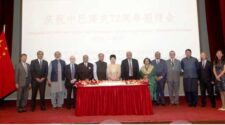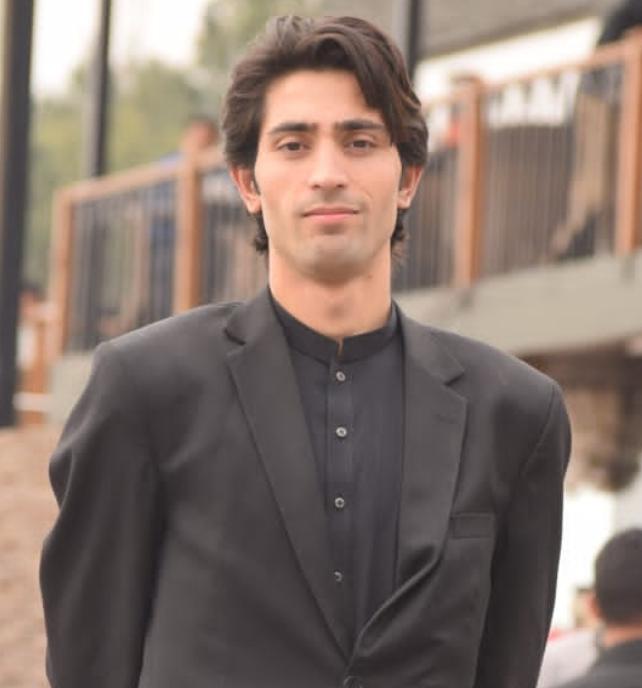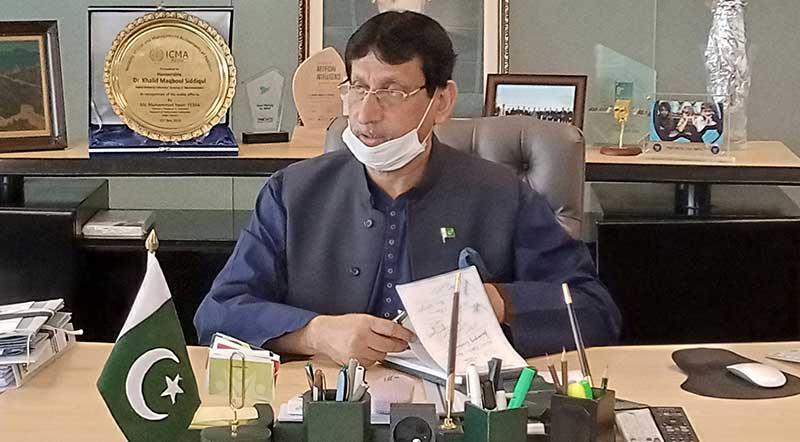By: Muhammad Akram Zaheer
PhD (Political Science)
A remarkable feature of the Islamic Revolution was the participation of women from traditional backgrounds on a large scale who wanted to overthrow the monarchy. Post-Islamic Revolution, the Iranian women have opportunities in few areas of social life but more constraint in others. During the Iran-Iraq war, Ayatollah Khomeini stressed for women to participate in social activities. Women also took part in the activities of socio-economic and political development and showed their large presence in the public sphere. In those days, a large number of the educated women entered civil service and 14 women become the member of the Constitutional Assembly. On the other hand, traditional and conservatives adherents were thinking that women should stay home and raise children while men should work for money to manage domestic needs.
 During the reform era of Muhammad Khatami, the women’s participation in different aspects of the political process and empowerment in civil society was impressive. The government also tried to remove obstacles to women’s progress. Conservatives believe that Khatami’s policy ruined Islamic norms and values. Ahmadinejad also rejected the women quota and women were disqualified from the holding of the presidential office. Then the seventh parliament also omitted gender justice, which was passed by reformists. The paramilitary commission for culture worked for a female dress code and propagated to promote the hijab. The parliament passed the bill of conditional abortion to save the life of mothers. This was an indication that there was no place for women in committees, the presidency, and parliamentary commissions.
During the reform era of Muhammad Khatami, the women’s participation in different aspects of the political process and empowerment in civil society was impressive. The government also tried to remove obstacles to women’s progress. Conservatives believe that Khatami’s policy ruined Islamic norms and values. Ahmadinejad also rejected the women quota and women were disqualified from the holding of the presidential office. Then the seventh parliament also omitted gender justice, which was passed by reformists. The paramilitary commission for culture worked for a female dress code and propagated to promote the hijab. The parliament passed the bill of conditional abortion to save the life of mothers. This was an indication that there was no place for women in committees, the presidency, and parliamentary commissions.
During the election of President Rouhani, female rights activists from both secular and religious backgrounds emerged and engaged in public life. The Revolutionary Guards and clerical establishment claimed an international conspiracy by the West to undermine the Islamic Republic of Iran. Molavardi’s success disappointed conservatives and encouraged women to participate in elections. On the other hand, reformists also demanded a 30% quota for women. This revival paid off with moderate Rouhani’s victory, who won all 30 seats of Tehran, and eight were women. In this election, there was a fourfold rose in the number of female candidates.
The Rouhani government gave permission to re-launch the Zanan-e-Emrooz magazine in 2014, which was banned with the allegation that the magazine was blackening and spreading pessimization during the Ahmadinejad regime. The magazine had been running stories about everything from domestic to workplace violence. It was a forum for activist women to make political and legal concerns across the country. The Rouhani government suspended Ahmadinejad’s policies such as female study of specific subjects in universities, reduction of work hours, and the dress code. The moderates have an aim to push women out of the family to society and participate in economic activities. The most encouraging step of the Rouhani government was the appointment of Shahindokht Moladverdi as vice president of female affairs on August 9, 2017.
During 2017-2018, several women took their headscarves off and made protests against the hijab law of the country. The court of the country sentenced several women who participated in the protest to between a few months to twenty years in prison, but eighteen years imprisonment was suspended later. The government also opened Azadi Stadium in June 2018 for women to watch the live screening of the Iranian national football team’s World Cup 2018 match but women are still banned from attending tournaments and watching league football matches. The Iranian Constitution also seems unclear about ethics, authorities have long censored music, art, and cultural expressions, and many have been prosecuted for such acts.
The Rouhani regime for its part has made headway with progressive gender policies but the tough work to correct past regimes’ legislation still remains. To the gathering of women on the anniversary of Hazrat Fatima (RA), the daughter of the Holy Prophet Muhammad (PBUH), President Rouhani stated that the country’s educated women enjoy a 26% share in managerial posts in the first half of the Iranian calendar year. Today, women are confident and have trust in their competencies and qualifications. In many fields of daily life of management, Iranian women have been accepted.
Despite the reformist and moderate regimes of Iran giving more space to women and them becoming more visible in society, Iranian women are still facing discrimination in personal matters related to inheritance, marriage, divorce, and child custody. Iranian women are not allowed to pass on their nationality to their foreign-born husband or their children like men can. Married women also are not allowed to obtain passports and travel outside the country without their husband’s permission. According to the civil code, the husband has the right to choose the place of living to prevent his wife from having an occupation if he believes that it is against family values.
Iranian women today are becoming more informed of contemporary trends within global feminism and are more trans-nationally engaged with the mechanisms, tools, and machinery created through the United Nations gender projects and conventions such as CEDAW (Convention on the Elimination of all forms of Discrimination Against Women). Although conservatives have been attempting to check female activities, women have been framing their demands within the CEDAW framework. Most female rights activists have adopted non-ideological, non-confrontational, non-sectarian, and reforms-oriented strategies. However, less access to the mainstream media of the country have affected the actualization of female movements. The political system and cultural barriers also have blocked the effectiveness of the female struggle for gender justice and equality. Nevertheless, Iranian women remained potentially determined and many are hopeful that one day Iran will enter into the era of reconciliation and will move towards a more balanced and less suppressive political system.








